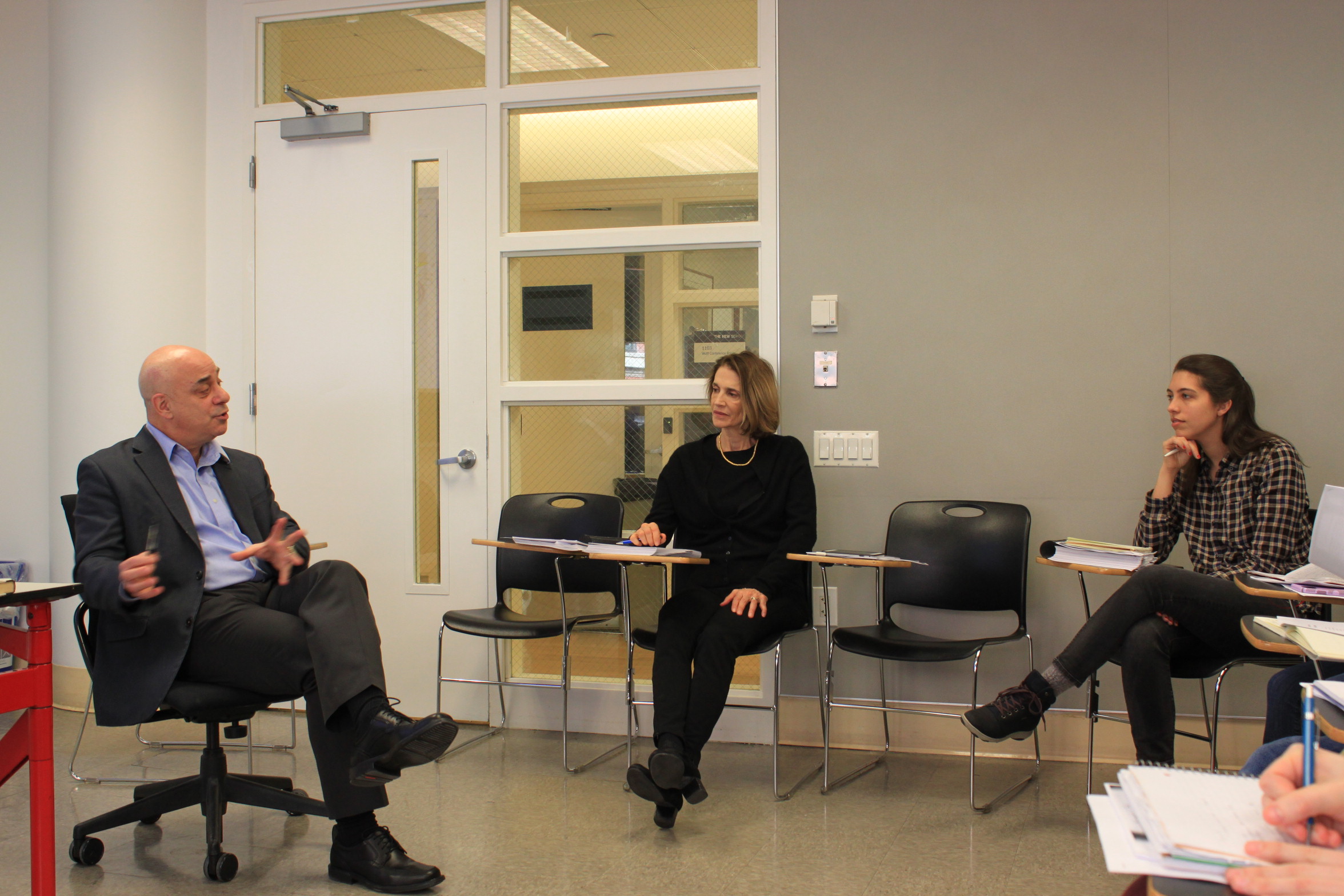
Two-Week Accelerated Economics Class Prepares Students To Tackle Real World Policy Issues
Professor Teresa Ghilarducci has been told by New School alumni that a class she teaches offering real-world skills in economic policy advocacy was the most useful course they ever took.
In January, Ghilarducci, the Bernard L. and Irene Schwartz Professor of Economics and Policy Analysis, taught Power, Economics, and Policy: National Economic Policy Analysis, a two-week, six-day-a-week intensive intersession class, at The New School for Social Research (NSSR). The class is part of the Institute for Economic Literacy, (IEL) an annual program that will offer two-week classes in the dynamics of capitalism and ways to influence economic policy.
According to its syllabus, the class “provides the theoretical, institutional, and technical background for effective advocacy of domestic economic policy and cost-benefit analysis and public management.” Students explored and discussed a range of topics, including microeconomics and macroeconomics, social psychology, and political theory.
The final project for the class was to write an effective policy memo advocating for a position on an issue of contemporary debate in economic policy. The ability to write high-quality policy recommendations is a skill that is valued by employers in top-level government bodies and nonprofits but one that is not typically taught in academia.
“Five years ago, Will [Milberg, NSSR dean and economics professor] and I thought, ‘Wouldn’t it be great for New School students if, instead of going home and sitting on their couch or figuring out how to get a job to pay their January rent, they could carry forward the kinds of thoughts and ideas and intensity they had in December?” said Ghilarducci, explaining the genesis of the class. “Not only would it help their educational process, but it would save money for students if they could take a few more credits in the spring and graduate early or on time. It was really a response to New School students’ wanting to make a difference in the world.”
While most of the students were economics majors from NSSR, the interdisciplinary component of the class also attracted students from the Milano School of Policy, Management, and Environment and Parsons School of Design. One such student was Maanasa Sivashankar, a student in Parsons’ MA Design and Urban Ecologies program, who for her final project wrote a policy recommendation to New York City Mayor Bill de Blasio about housing wealth distribution.
“I am a designer from India and have worked on government projects, so I have a good idea how the Indian government works,” she said when discussing why she took the class. “I wanted to get an understanding of how the American economy works.”
Each student’s policy recommendation began with a clear objective, such as raising the minimum wage by a certain amount or doubling mental health spending in communities with high crime rates.
“Students had to write a policy memo to an imagined principal; it could be the president of the United States, the head of the SEC, or the Democratic chairman of the Judiciary Committee,” said Ghilarducci. “They had to imagine what policy they wanted to change, discover what agency would change that policy, and write a memo to that agency.”
She advised the class to err on the side of brevity. To help students frame their policy recommendations, she asked them, “If you had seven minutes with the president, what would you tell him to do?”
Heidi Shierholz, the former chief economist at the United States Department of Labor in the Obama administration and currently a staff economist at the Economic Policy Institute, was the class’s special guest lecturer. Shierholz discussed the “art of writing a policy memo” and oversaw a policy writing workshop. She emphasized keeping memos short, avoiding theory, and researching the opposition to understand possible objections.
Milberg also delivered a compelling guest lecture, “The Fall in Labor’s Share and Its Causes: International Labor Standards, Trade, and Domestic Economic Policies,” in which he discussed concepts such as intellectual property, monopolies, and financialization, the growth of a nation’s financial sector relative to its overall economy.
“I was happy to participate in the IEL, which provides a unique combination of heterodox economic theory as applied to the important policy issues of the day,” said Milberg. “My lecture covered the important topic of globalization and its implications for income distribution and financialization.”